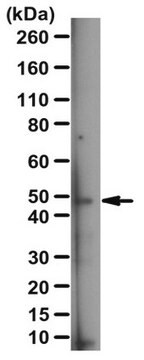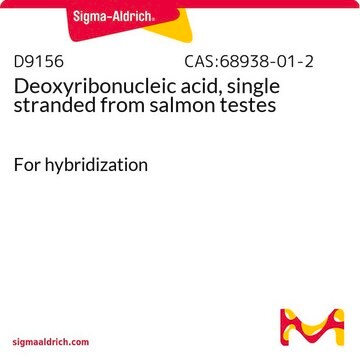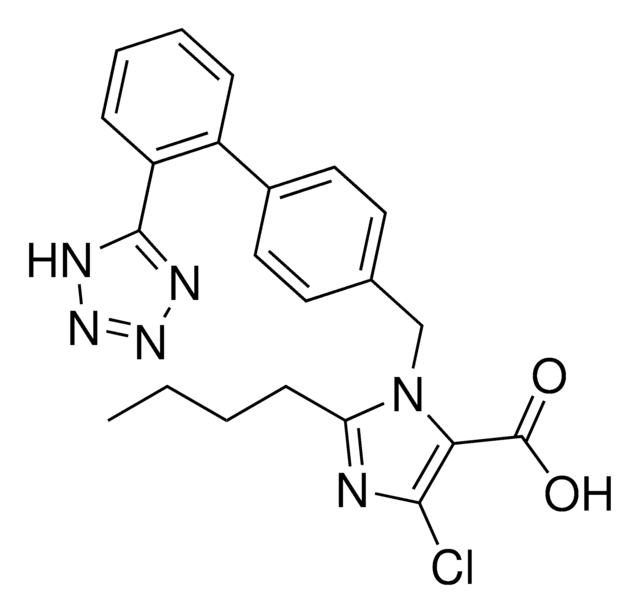AB3538P
Anti-Monocarboxylate Transporter 1 Antibody
Chemicon®, from rabbit
Synonim(y):
MCT1
Wybierz wielkość
Wybierz wielkość
About This Item
Polecane produkty
pochodzenie biologiczne
rabbit
Poziom jakości
forma przeciwciała
affinity purified immunoglobulin
rodzaj przeciwciała
primary antibodies
klon
polyclonal
oczyszczone przez
affinity chromatography
reaktywność gatunkowa
human
producent / nazwa handlowa
Chemicon®
metody
ELISA: suitable
western blot: suitable
numer dostępu NCBI
numer dostępu UniProt
Warunki transportu
dry ice
docelowa modyfikacja potranslacyjna
unmodified
informacje o genach
human ... SLC16A1(6566)
Specyficzność
Immunogen
Zastosowanie
Neuroscience
Ion Channels & Transporters
ELISA: 1:10,000-1:100,000 using 50-100 ng control peptide per well.
Optimal working dilutions must be determined by the end user.
Postać fizyczna
Przechowywanie i stabilność
Inne uwagi
Informacje prawne
Oświadczenie o zrzeczeniu się odpowiedzialności
Nie możesz znaleźć właściwego produktu?
Wypróbuj nasz Narzędzie selektora produktów.
Kod klasy składowania
12 - Non Combustible Liquids
Klasa zagrożenia wodnego (WGK)
WGK 2
Temperatura zapłonu (°F)
Not applicable
Temperatura zapłonu (°C)
Not applicable
Certyfikaty analizy (CoA)
Poszukaj Certyfikaty analizy (CoA), wpisując numer partii/serii produktów. Numery serii i partii można znaleźć na etykiecie produktu po słowach „seria” lub „partia”.
Masz już ten produkt?
Dokumenty związane z niedawno zakupionymi produktami zostały zamieszczone w Bibliotece dokumentów.
Active Filters
Nasz zespół naukowców ma doświadczenie we wszystkich obszarach badań, w tym w naukach przyrodniczych, materiałoznawstwie, syntezie chemicznej, chromatografii, analityce i wielu innych dziedzinach.
Skontaktuj się z zespołem ds. pomocy technicznej








